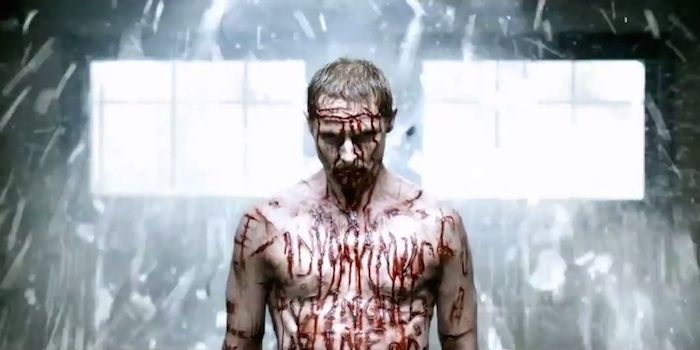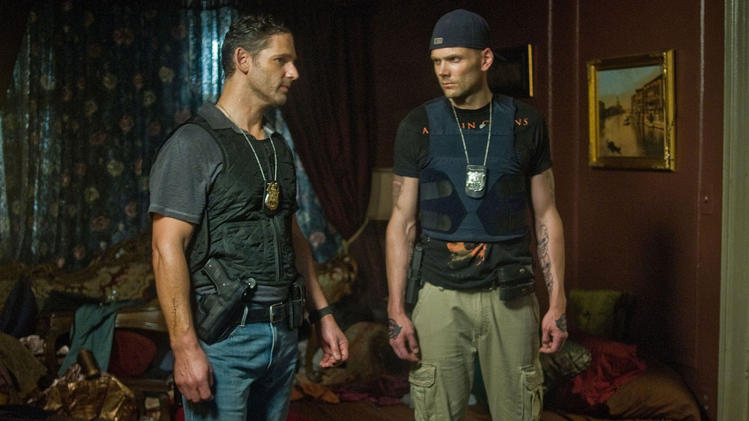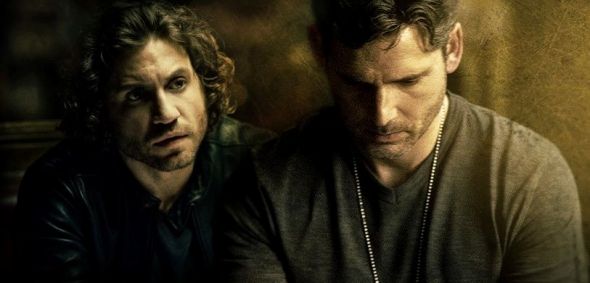The Problem of (Deliver us From) EVIL
 The latest horror entry from director Scott Derrickson, Deliver us from Evil, is not the strongest entry in the horror genre. However, as one part police procedural with the additional component of demonic activity, it’s more accessible to moviegoers who might typically avoid the genre or watch from behind the sofa. Scarier than an episode of Sleepy Hollow, it nowhere approaches the creep factor of Derrickson’s Sinister. “Solid” is perhaps a good word for the cinematic story of police detective Ralph Sarchie, who teams up with Mendoza – a Jesuit priest – as they face more than just the evil that men do.
The latest horror entry from director Scott Derrickson, Deliver us from Evil, is not the strongest entry in the horror genre. However, as one part police procedural with the additional component of demonic activity, it’s more accessible to moviegoers who might typically avoid the genre or watch from behind the sofa. Scarier than an episode of Sleepy Hollow, it nowhere approaches the creep factor of Derrickson’s Sinister. “Solid” is perhaps a good word for the cinematic story of police detective Ralph Sarchie, who teams up with Mendoza – a Jesuit priest – as they face more than just the evil that men do.
It can’t match the amazing, recent entry in the annals of horror that was The Conjuring, but it’s still a serviceable evening for horror fans and folks who actually believe, as Winston Zeddmore once proclaimed to New York’s mayor, “these things are real.”
(Also refreshing is a decidely different Joel McHale as Sarchie’s partner, Butler. Tattooed, muscular and an ace with knives, it was an unexpected treat for this Community fan). #sixseasonsandamovie
Of course, some question why I (or any Christian) would see or review a horror movie. I deal with this in a short post including quotes from Christian director Scott Derrickson, and spend most of a chapter on this in my book. Suffice to say, this movie speaks for itself on that subject… not as loudly as Derrickson’s The Exorcism of Emily Rose (which essentially put the reality of demons – and God – on trial) but in a more story-driven fashion in keeping with an evening’s entertainment. Consider these six points:
-
Demons and the occult are in NO way glamorized – quite the opposite, in fact. The message is STAY. AWAY.
-
Sarchie is a lapsed believer forced to confront his thoughts on the supernatural… and God.
-
Mendoza and Sarchie have a brief conversation about “the problem of evil” that makes for great discussion (explained more below).
-
Confession of sin, and how that sin impacts every aspect of one’s life and those around you, is an important device.
-
Mendoza is not a paragon of virtue or a mockery of a holy man; he’s a fallible man who needs as much grace as Sarchie.
-
Nothing but the power of Christ is portrayed as having any power over the things they are facing.
Why do bad things happen to good people? The two men’s refreshing conversation in an FDNY-friendly bar serves as a brief-but-very-real interchange between men frustrated by the world around them. Mendoza’s eloquent, elegant answer even hints at our role as God’s image-bearers in the world, and the internal compass some would say makes a moral argument for God’s existence. Fortunately, it’s not heavy-handed and doesn’t linger long: it just plants some seeds.
The first Derrickson film I saw – Hellraiser: Inferno – also featured a police detective compromised by sin and yet incensed by the killer he pursued. There was no holy man to intercede for him, whereas Mendoza presents an image of an earnest priest more in keeping with Tom Wilkinson’s character in Emily Rose. Deliver us seems to have split the difference between these two films, and I only wish it could have added the shocking scare-factor of Sinister to bring all this director’s evident talents together.
Derrickson is obviously enjoying playing with form, and it’s worth watching… but has yet to truly “deliver” a frightful masterpiece.




